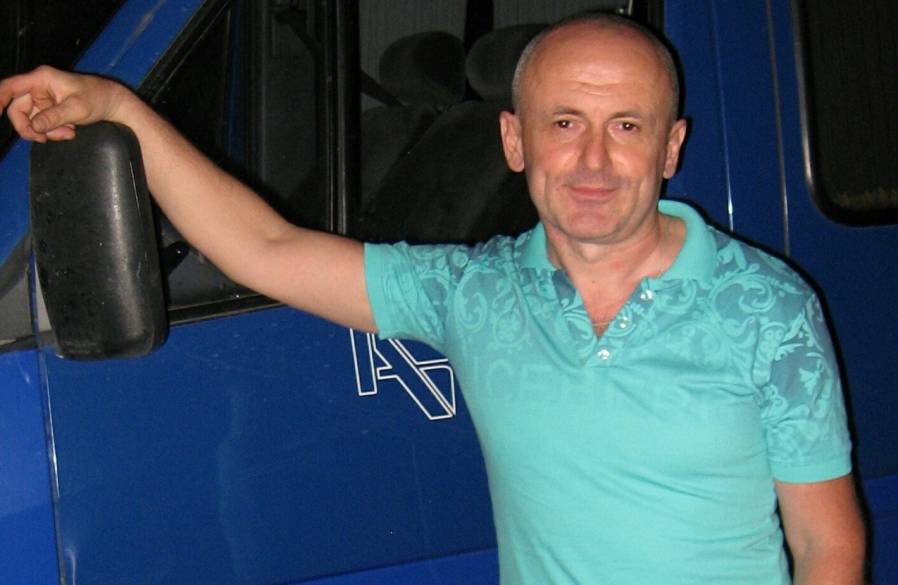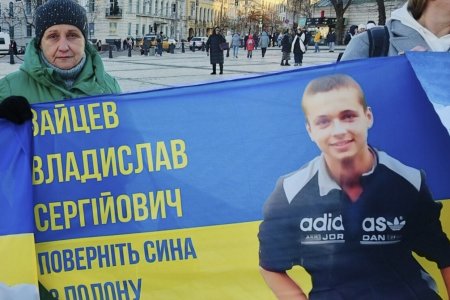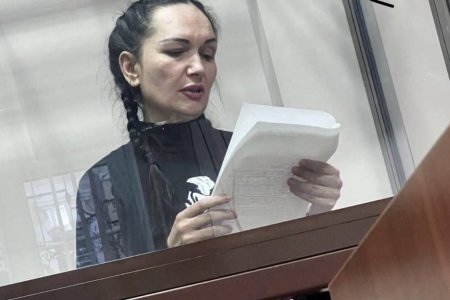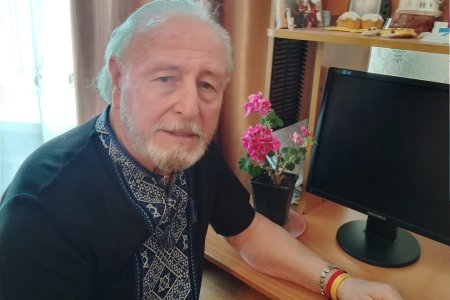
Tetiana Matiushenko rejoiced, together with other Ukrainians, on 3 February at the release of over 200 prisoners of war from Russian captivity. Her joy for the men and their families was, however, tinged with sadness as her husband remains imprisoned, although it is almost seven years since he was seized and savagely tortured in Russia’s proxy ‘Donetsk people’s republic’ [‘DPR’] for his pro-Ukrainian position.
She and the family members of other Ukrainian hostages, held prisoner since before Russia’s full-scale invasion of Ukraine, feel frustrated that their relatives are almost forgotten. Tetiana insists that her husband has the right to freedom and not as one of the last to be released. in an interview to News of Donbas, Tetiana said that each day that her husband spends in such captivity is sheer hell
Matiushenko, who turned 59 in January this year, has been imprisoned since July 2017. Although Tetiana managed to get him added to Ukraine’s exchange list soon afterwards, she has repeatedly been told that Russia is not handing him over and will not. She is openly sceptical, and points out that Kyiv has previously found ways, including something or someone that Russia wanted enough, in order to achieve the release of other hostages whom it was feared Russia “will never hand over.” Why not her husband? The situation is, after all, serious given Valery’s state of health, including a condition exacerbated by the savage torture he was subjected to while held at the notorious Izolyatsia ‘concentration camp’, the secret prison in occupied Donetsk.
Tetiana is also bitter that the Red Cross which should have insisted, as is its right, on visiting her husband, and could have at least passed on medication, etc., has not once visited him. Most of the information she has about Valery and his condition has come from the accounts of men who were formerly held hostage with him but were released in earlier exchanges. She knows from such witnesses that her husband has lost a huge amount of weight and is extremely pale.
There are generally serious grounds for concern about Valery’s state of health, and not only because he is not a young man. He has an inguinal hernia which can block the blood supply to parts of the intestine unless treated. One of the other Ukrainian hostages, a surgeon by profession, managed to manually reduce the hernia during an earlier emergency, but this is a condition that requires proper treatment in a hospital, and the failure to provide this is placing Matiushenko’s life in danger.
Even before he was taken prisoner in July 2017, Matiushenko had suffered from Tourette syndrome. This is a neurological disorder which earlier had manifested itself only in a nervous tic. The torture he endured over many months in Izolyatsia has exacerbated the problem, leading to muscular spasms. These are physically and psychologically debilitating and can cause breathing difficulties.
Matiushenko is not receiving any medical treatment with the situation now of particular concern as he is experiencing thyroid problems and there are changes in his lymph nodes. All of this urgently needs proper investigation through a CT scan, since such changes could indicate, or lead to, cancer.
The Matiushenko family are from Kalmiuske [until 2016 Komsomolske], a city in Donetsk oblast which is just over 30 kilometres from the border with Russia. That distance is of importance as, back in the first years of the military conflict in Donbas, Russia was still pretending that this was ‘a civil war’ in which it was not implicated. In fact, Tetiana reports that much of the shelling that they faced in the city came the direction of the Russian border. She says that it was after the battle of Ilovaisk (at the end of August 2014) when, for the first time, Russia almost certainly deployed significant numbers of its own troops, that “the Russian military entered the city with their technology.” Doubtless because of its uses as a military base, the city was closed, and the population terrorised, especially after a wave of ‘arrests’ in 2017. There were at least four from May to July 2017, including that of Valery Matiushenko who was then 52, and Olena Fedoruk.
Neither Valery nor Tetiana had ever concealed their pro-Ukrainian views, with this placing them in danger in the Russian proxy ‘Donetsk republic’. The two had a small business with a shop which Tetiana ran, while Valery fixed various household appliances in the adjacent workshop, as well as being active as a musician and playing gigs in restaurants. The family business was seized in 2014 by Russian and pro-Russian militants who turned it into a military unit.
Matiushenko disappeared on 15 July 2017. His wife later learned that he had been seized on the street, with a bag placed over his head. Over the next three days, she knew nothing, and then people from the so-called ‘DPR ministry of state security’ turned up to search their home. They claimed that Matiushenko had confessed to spying for the SBU [Ukraine’s Security Service]. In fact, Tetiana was told by one of the militants that her husband had been “a hard nut to crack” and had only capitulated when they threatened to seize his family. She was openly warned that they would come for her also and that their son would be thrown into a children’s home.
It is known, mainly from former hostages who were finally released, that Matiushenko was held for many months and subjected to “insane levels of torture”, including electric shocks, beatings and mock executions at Izolyatsia Matiushenko was initially held in what is colloquially referred to as ‘stakan’ or a glass. This is a confined space, of around 1 m², in which a person can only stand or squat. There he was left for several days without food or drink. He was then taken to a cell where they began torturing him with electric currents. We know from other victims that they are taken to a basement, undressed and then tied with the use of scotch tape to a metal table. They connect electric wires to parts of the victim’s body, then pour water over him or her and then turn the electric current on. Victims consider themselves ‘lucky’ if the electric wires are attached ‘only’ to earlobes or to fingers, but very often they are attached to genital parts, causing particularly unendurable pain. Any such use of electric shocks is extremely dangerous and in Matiushenko’s case has resulted in damage to internal organs and to the central nervous system.
Tetiana reports that her husband was not just forced to endure such physical torture. For her husband, a patriot of Ukraine, even the mock executions that he was subjected to were not as bad as being forced to sing the so-called ‘anthem’ of Russia’s fake ‘DPR’ until 3 a.m.
On 28 March 2019, Valery Matiushenko was ‘sentenced’ by an illegitimate ‘DPR court’ to ten years for supposedly collaborating with he SBU. He remains imprisoned in prison colony No. 32 in Makiivka, together with dozens of other Ukrainian hostages.



